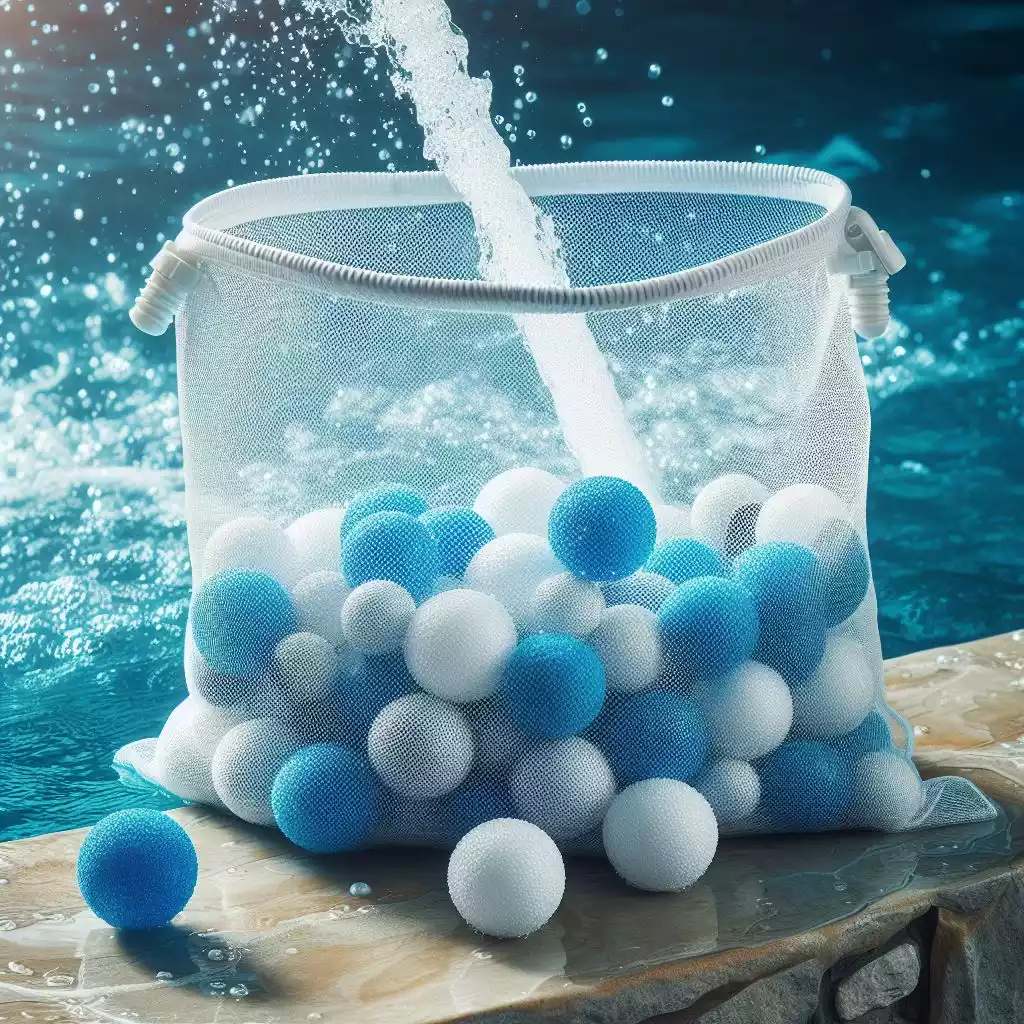Maintaining a sparkling clean and hygienic swimming pool is a priority for every homeowner and pool operator. Among the various pool cleaning solutions available, pool filter balls have emerged as a popular choice due to their efficiency, ease of use, and eco-friendliness. These innovative filters not only capture dirt, debris, and microorganisms but also enhance water circulation, promoting overall pool health. In this article, we’ll delve into strategies to maximize the cleaning efficiency of your pool filter balls, ensuring your pool remains crystal clear and inviting all season long.

I. Understand the Basics of Pool Filter Balls
First and foremost, it’s crucial to have a solid grasp of how pool filter balls work. These spherical filters, often made of durable materials like polypropylene or high-density polyethylene, rely on surface area and porosity to trap contaminants as water flows through them. By understanding their basic mechanics, you can tailor your maintenance routine to optimize their performance.
II. Regular Backwashing and Rinsing
1. Schedule Regular Backwashing:
Regularly backwashing your pool filtration system, including the filter balls, helps remove accumulated dirt and debris, preventing clogs and maintaining optimal flow rates. Follow manufacturer guidelines to determine the ideal backwashing frequency, typically every few weeks or months depending on pool usage.
2. Rinse After Backwashing:
After backwashing, give the filter balls a thorough rinse with clean water to remove any remaining impurities. This step ensures they’re ready to resume their cleaning duties with maximum efficiency.
III. Maintain Proper Water Chemistry
1. Balance pH and Alkalinity:
Unbalanced water chemistry can lead to scale buildup on the filter balls, reducing their effectiveness. Regularly test and adjust your pool’s pH and alkalinity levels to maintain the recommended range, typically a pH of 7.2-7.8 and alkalinity around 100-150 ppm.
2. Control Chlorine Levels:
Chlorine is essential for sanitizing pool water, but excessive levels can degrade filter media over time. Monitor and maintain chlorine levels within the recommended range (1-3 ppm for free chlorine) to protect both your pool and filter balls.

IV. Avoid Excessive Chemicals and Contaminants
1. Minimize Chemical Overload:
Avoid using excessive amounts of chemicals or pool treatments that can harm the filter balls or promote rapid buildup of contaminants. Follow manufacturer recommendations for dosage and application.
2. Prevent Foreign Objects:
Keep debris like leaves, twigs, and insects from entering the pool, as these can clog the filter balls and reduce their efficiency. Regularly skim the pool surface and use a pool net to remove visible debris.
V. Optimize Pool Circulation
1. Run the Pump Adequately:
Ensure your pool pump is running for the recommended number of hours per day, typically 8-12 hours. This promotes proper water circulation, allowing the filter balls to do their job more efficiently.
2. Check Pool Jets and Skimmers:
Ensure all pool jets and skimmers are clean and functioning properly. Blocked or misaligned jets can disrupt water flow, reducing the effectiveness of the filter balls.
VI. Inspect and Replace as Needed
1. Regularly Inspect Filter Balls:
Visually inspect your filter balls periodically for signs of wear, discoloration, or excessive buildup. Damaged or worn-out filter balls should be replaced promptly to maintain optimal cleaning performance.
2. Follow Replacement Guidelines:
Follow the manufacturer’s guidelines for filter ball replacement intervals. While some filter balls can last for years with proper care, others may need to be replaced more frequently depending on pool usage and water conditions.
VII. Employ Additional Cleaning Strategies
1. Use a Pool Vacuum:
Regularly vacuum your pool’s floor and walls to remove settled debris that might bypass the filter balls. This complementary cleaning method ensures your pool stays clean from top to bottom.
2. Shock Treatment:
Periodically use a pool shock treatment to eliminate bacteria, algae, and other microorganisms that may have escaped the filter balls’ grasp. This helps maintain water clarity and promotes a healthier swimming environment.
VIII. Embrace Smart Pool Technology
Invest in a Pool Monitor:
Consider investing in a smart pool monitor that tracks water quality and pump performance. These devices can alert you to potential issues before they become major problems, allowing you to take proactive steps to maintain your pool’s cleanliness and filter balls’ efficiency.
Conclusion
By implementing these strategies, you can maximize the cleaning efficiency of your pool filter balls, ensuring your pool remains a pristine oasis for relaxation and fun. Remember, proper maintenance and attention to detail are key to getting the most out of your pool filtration system. With the right care, your filter balls will continue to deliver superior cleaning performance for years to come.

 Instant
Quote
Instant
Quote Email
Us
Email
Us